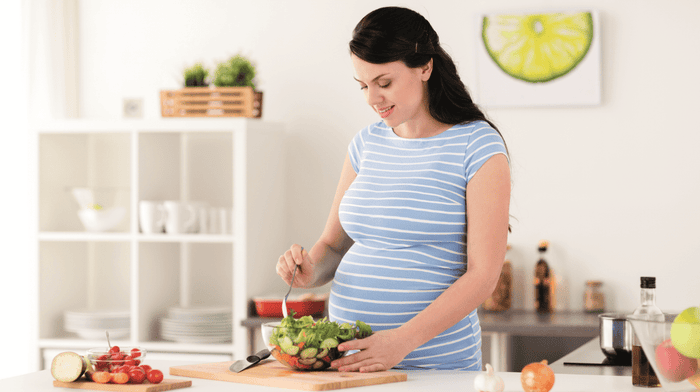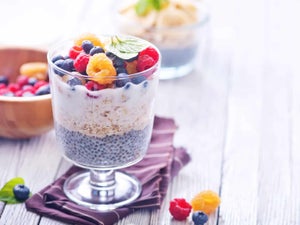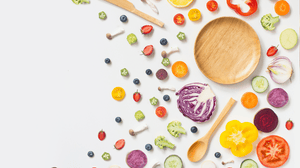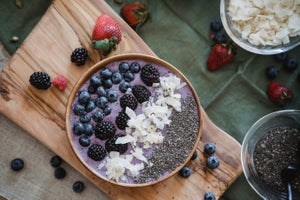
The microbes which live within our digestive system are influenced by a number of factors, such as our diet, the environment in which we live, the amount and timing of our sleep, our exercise routine and even our mood (especially stress levels). We can manipulate these components in order to positively support the health of our gut.
SO WHAT CHANGES CAN WE MAKE TO OUR DIET TO SUPPORT A HEALTHY MICROBIOME DURING PREGNANCY?

ROUTINE
What we eat, how we eat and the timings of our meals can all affect our gut microbes. Sticking to a regular routine of having breakfast, lunch and dinner at similar times each day can help to regulate our metabolism and maintain balance in the body and within the gut microbiome. If you prefer eating smaller meals throughout the day, aim to keep to the three main meals and fit in smaller nutritious snacks in between.
FROM SCRATCH
Cooking meals from scratch not only provides more nutrients to your diet than eating processed foods, but may also help prepare the body for digestion.
EAT MINDFULLY
When sitting down to eat, aim to turn off all distractions and take in at least five deep, slow breaths with slow exhalations each time to encourage your body to relax, shifting your attention to the food and allowing your body to ‘rest and digest’.

Certain foods and food groups are particularly important to incorporate into a nutritious pregnancy diet.
Protein requirements increase during pregnancy, healthy proteins include grass-fed meats, fish, lentils, beans, pulses, yoghurt, nuts, seeds and eggs.
Eggs provide a good source of high-quality protein as well as fatty acids, vitamins and minerals.
Oily fish, such as salmon, anchovies and sardines, are high in omega-3 fatty acids. However, the NHS recommends not eating more than two portions of oily fish per week during pregnancy, due to potential toxins stored in the fish. Additionally, some fish, such as swordfish, shark and marlin should be avoided altogether during pregnancy.
Dark leafy green vegetables, such as kale and spinach, are packed full of nutrients and high in fibre. In particular, kale is a rich source of folate, vitamin C, vitamin K, iron, magnesium, potassium and calcium. Rinse in cold water before use, which is especially important if eating raw in a salad.
Colourful vegetables and fruit contain different phytonutrients, which have antioxidant and anti-inflammatory effects. Therefore, eating a rainbow of different coloured fruits and vegetables each day will help you achieve a diverse range of these phytonutrients. Aim for at least five portions of vegetables and two fruits.
Fermentable fibres (prebiotics) are the main food source for our beneficial gut microbes. Good sources are leeks, onions, garlic, oats and slightly green bananas.
Written by Claire Barnes

Related Articles








